Public opinion split towards day of multiple-union strike action – though few think the Government is handling negotiations well
- Public opinion is split regarding the extent to which they support/oppose multiple public sector unions striking on 1st February, with 40% supporting and 38% opposing
- 40% think multiple-union strike action is more effective than strikes by individual unions – only 10% think it’s less effective. However 38% also think it will be more personally disruptive.
- Fewer than 1 in 5 (17%) think the UK government led by Rishi Sunak is doing a good job negotiating with trade unions to prevent strikes, with 31% of Britons expecting a Labour government led by Keir Starmer would do a better job.
London, UK. New research from Ipsos of the British public has found that, though 4 in 5 (80%) continue to think it’s important to have trade unions to protect workers’ interests, opinion is split regarding support for the multiple union strike action due to take place on 1 Feb, with 40% in support and 38% opposed. Support is much higher amongst 2019 Labour voters (65%) relative to 2019 Conservative voters (21%).
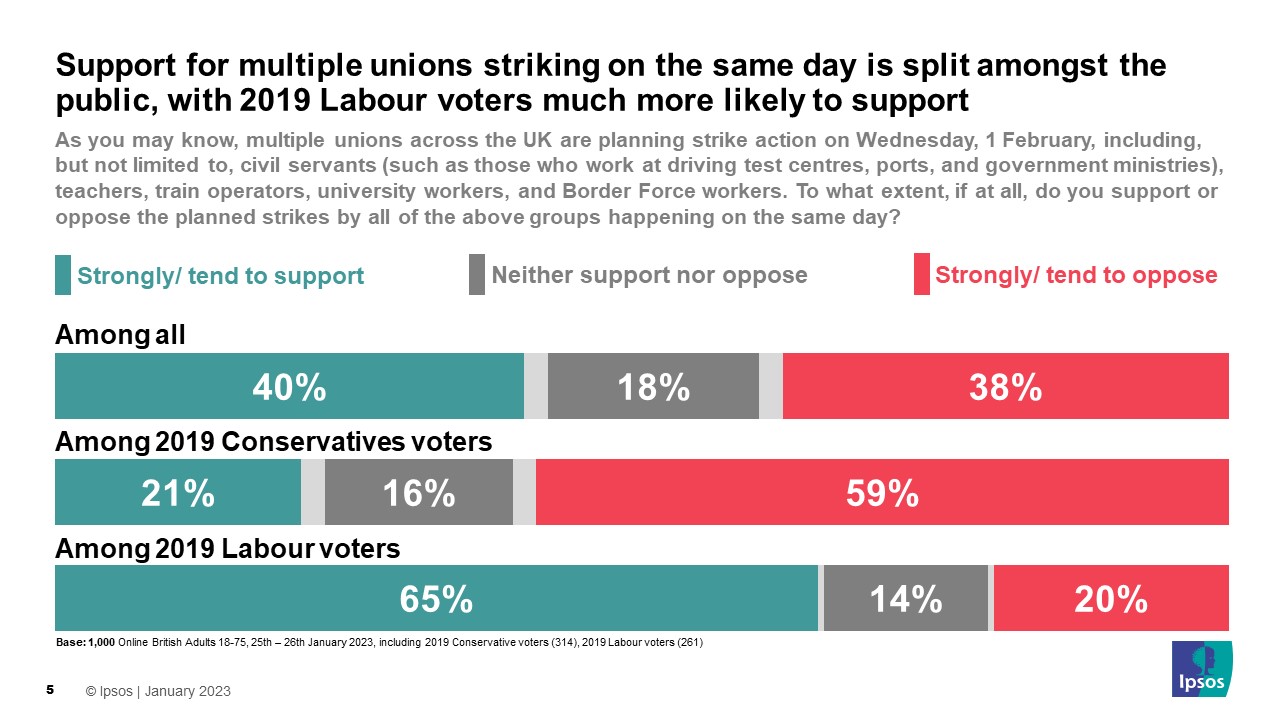
When thinking about support for strikes in general (not specifically on 1 Feb) by individual sectors, attitudes vary by profession, with the largest shares of support for nurses and ambulance workers and the smallest for driving examiners.
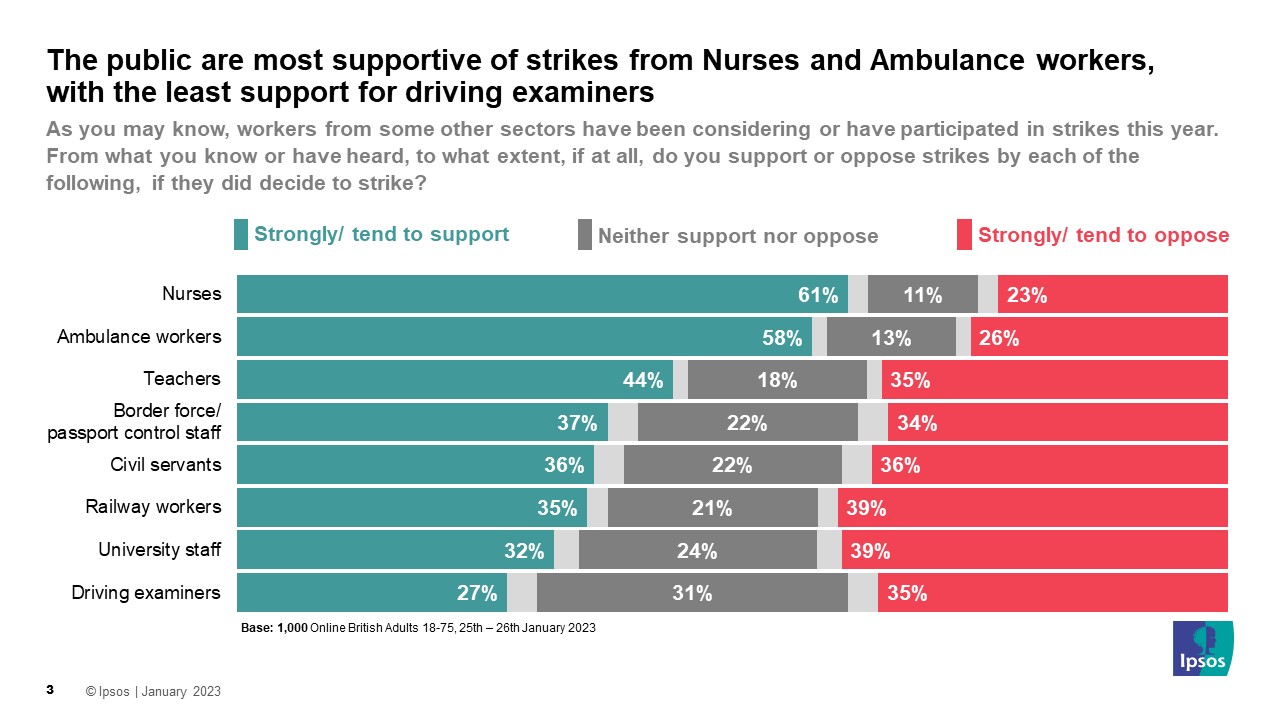
Despite 4 in 10 believing the multiple union strike action on 1 February will be more disruptive to them than previous days of strike action, 4 in 10 also think that multiple strike action will be more effective than individual strikes.
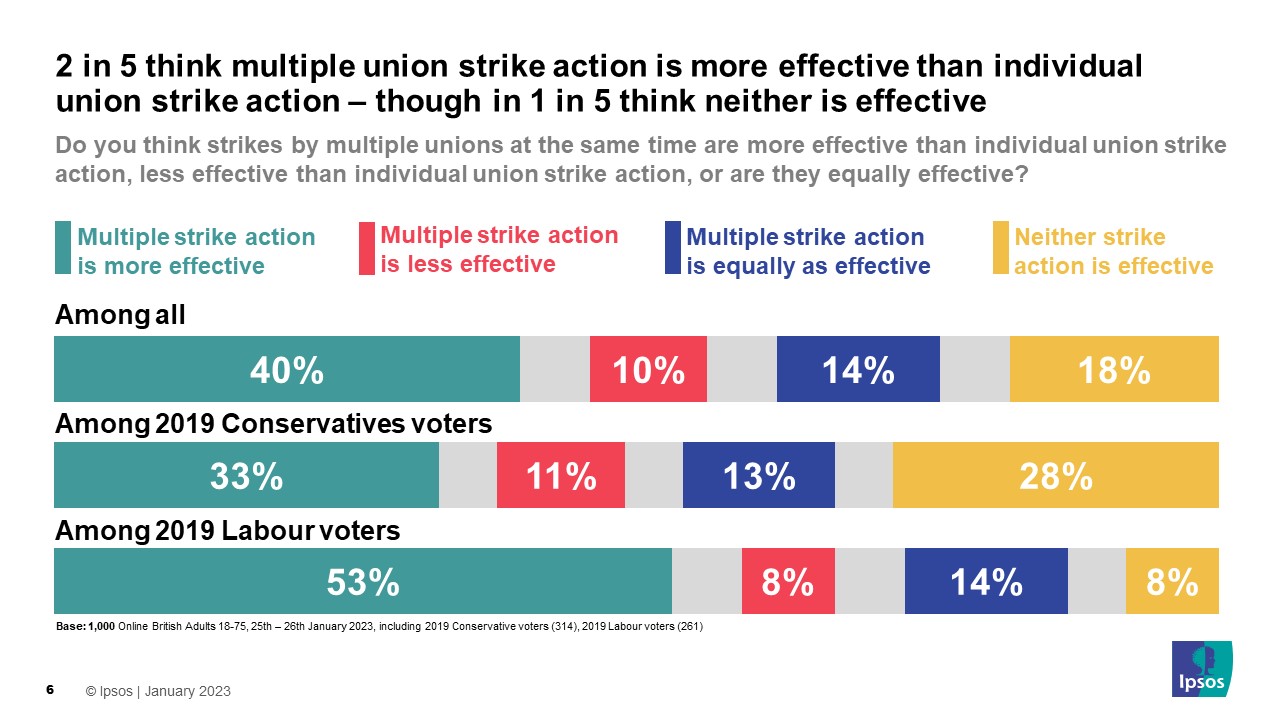
Compared to previous days of strike action, 38% of Britons think the multiple union strike action on 1 February will be more disruptive to them personally, with a further 28% saying it will be equally as disruptive. A larger share of 18-34-year-olds expect it will be more disruptive than previous days of strike action compared to other age groups. Having said that, under 54s are more likely to support the coordinated strikes than older people (45% of 18-34 year olds and 43% of 35-54s, but only 31% of those aged 55-75).
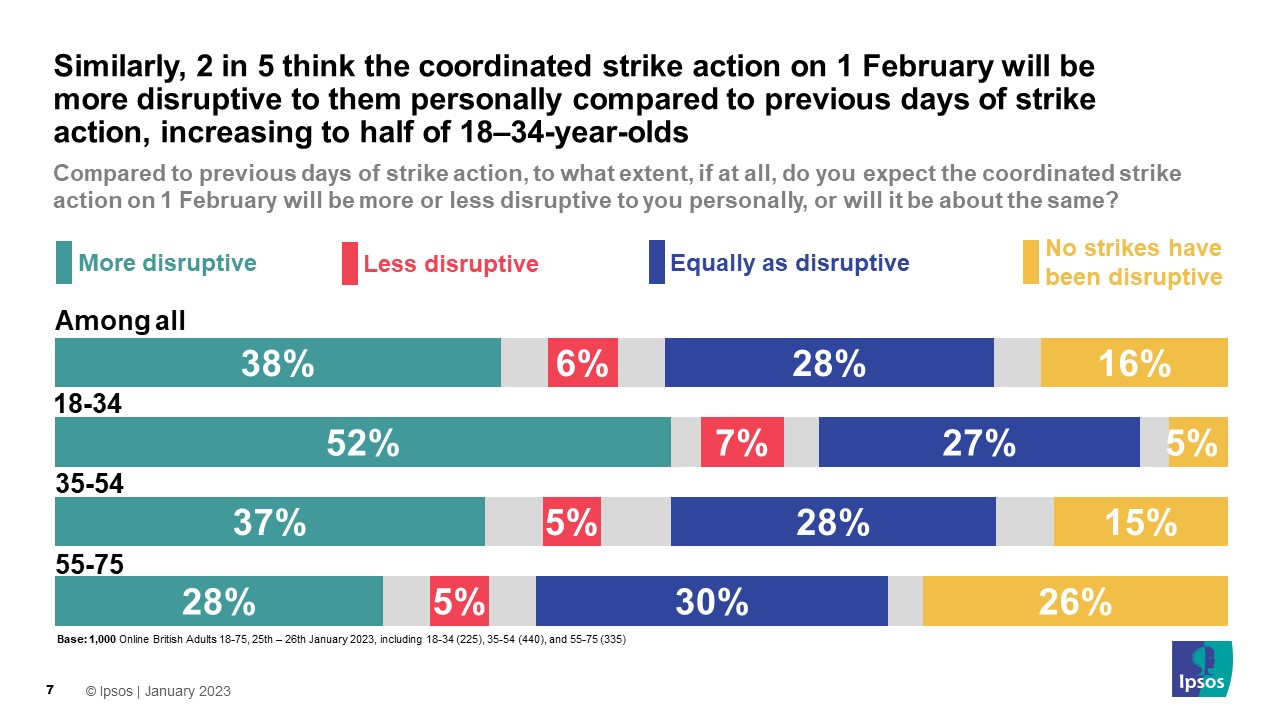
Just under 1 in 5 (17%) think the UK government led by Rishi Sunak is doing a good job negotiating with trade unions to prevent public sector workers going on strike, with half thinking it is doing a bad job and 1 in 4 neutral. 31% expect a Labour government led by Keir Starmer to do a better job, compared to 23% who say worse and 34% who think it would make no difference.
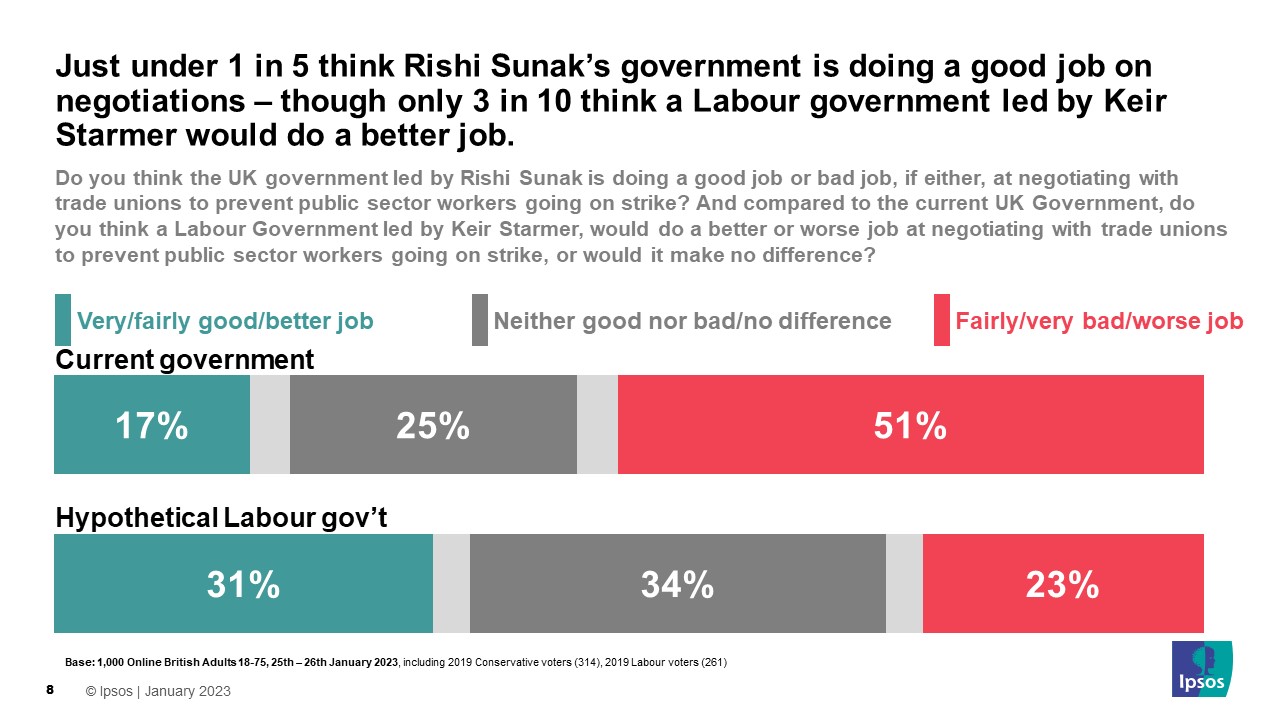
Thinking generally rather than about the specific strikes on 1st February, 54% think strikes are an effective mechanism to protect workers’ interests, increasing to 2 in 3 of those aged 18-34 and 3 in 4 2019 Labour voters.
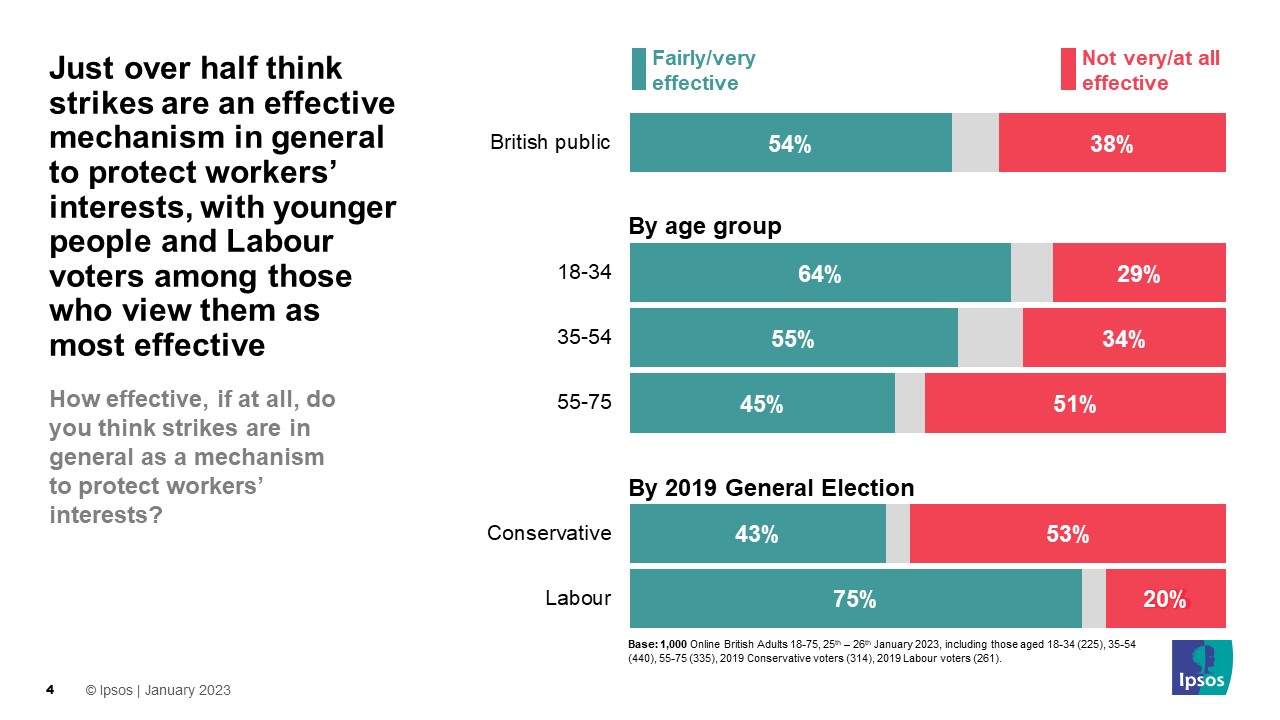
Britain’s workers’ rights viewed less favourably than France and Germany’s, but more favourably than the USA
When asked about how workers’ rights in Britain compare to other countries, three in ten think they are weaker than those in France and Germany, but 37% think they are stronger than workers’ rights in the USA. Around 1 in 3 though don’t know.
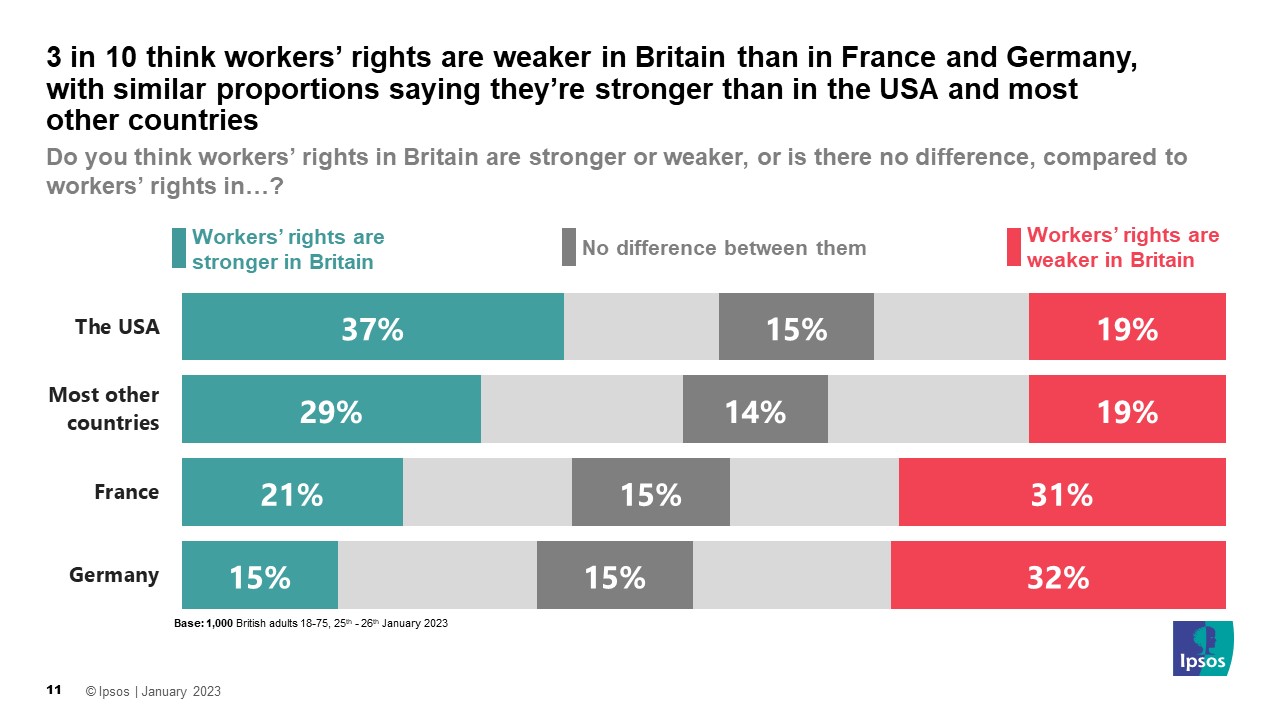
Gideon Skinner, head of political research at Ipsos, said:
Public attitudes towards the planned day of co-ordinated strikes are mixed, with as many in support as opposed, and belief that multiple strikes will be more effective achieving their aims matched by the proportion who expect to find it more personally disruptive (even though supporting the strikes and expecting them to be disruptive are not necessarily mutually exclusive). However, there is little confidence in the Government’s approach to the negotiations – and while confidence is higher in a Labour govt, people don’t think it would make a big difference. More broadly, the public continues to have different levels of sympathy for different professions going on strike, although the principle of trade unions is broadly accepted.
Technical note:
Ipsos interviewed a representative quota sample of 1,000 adults aged 18-75 in Great Britain. Interviews took place on the online Omnibus 25th-26th January 2023. Data has been weighted to the known offline population proportions. All polls are subject to a wide range of potential sources of error.




